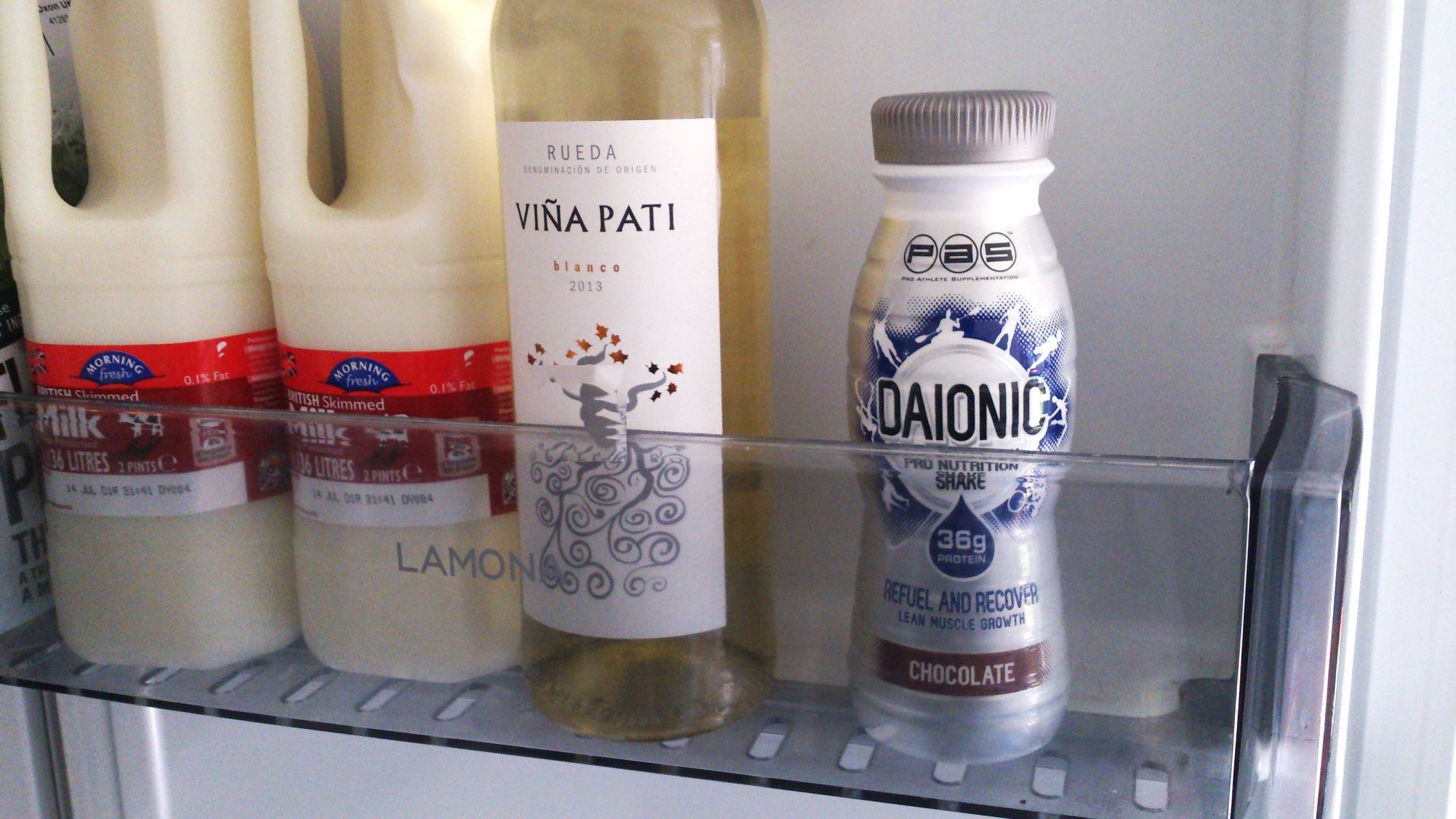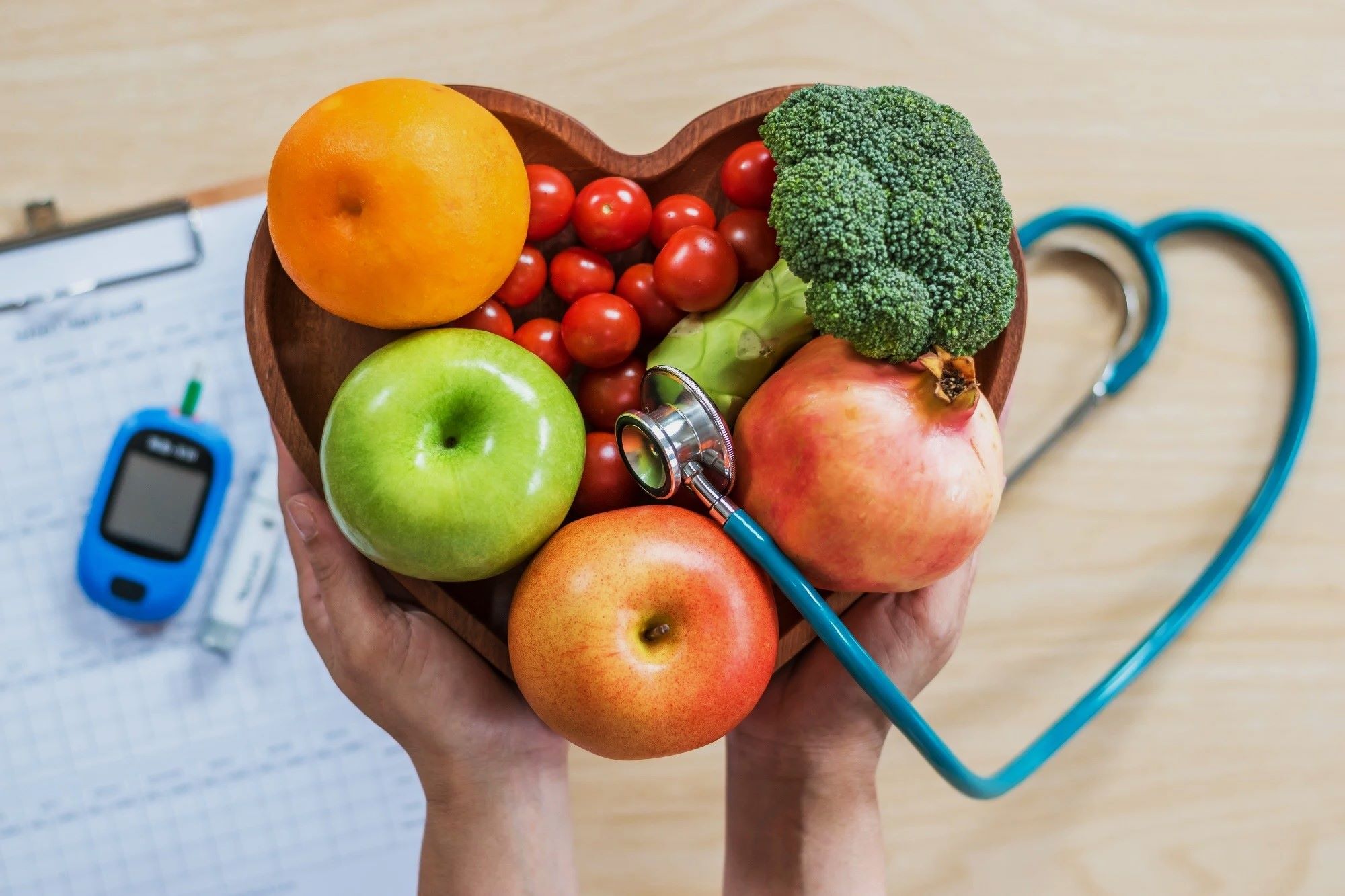Home>Health & Nutrition>Nutrition Guide For Women’s Running


Health & Nutrition
Nutrition Guide For Women’s Running
Published: March 7, 2024
Discover the ultimate nutrition guide for women's running. Learn how to optimize health and nutrition for peak performance. Achieve your fitness goals with expert advice and tips.
(Many of the links in this article redirect to a specific reviewed product. Your purchase of these products through affiliate links helps to generate commission for Therunningadvisor.com, at no extra cost. Learn more)
Table of Contents
Importance of Nutrition for Women's Running
Nutrition plays a crucial role in the performance and overall well-being of women who engage in running. Proper nutrition provides the necessary fuel for the body to perform optimally during runs, aids in muscle recovery, and supports overall health. For women, in particular, maintaining a balanced diet is essential for managing energy levels, hormonal balance, and bone health. Whether you're a casual jogger or a seasoned marathon runner, paying attention to your nutrition can significantly impact your running experience.
Read more: A Comprehensive Guide To Running Nutrition
Benefits of Proper Nutrition for Women's Running
-
Energy Levels: Adequate nutrition ensures that women have the energy needed to power through runs. Carbohydrates, in particular, are a vital source of energy for runners, providing fuel for muscles and the brain.
-
Hormonal Balance: Women's nutritional needs can fluctuate due to hormonal changes. Consuming a well-rounded diet with essential nutrients can help support hormonal balance, which is crucial for overall health and performance.
-
Muscle Recovery: Running can put a strain on the muscles, and proper nutrition plays a key role in supporting muscle recovery and repair. Consuming adequate protein, along with other essential nutrients, can aid in the repair and growth of muscle tissues.
-
Bone Health: Women are more prone to conditions such as osteoporosis, making bone health a critical consideration. Proper nutrition, including sufficient calcium and vitamin D intake, can help support bone health and reduce the risk of injuries related to bone density issues.
-
Immune Function: Engaging in regular running can temporarily suppress the immune system. Proper nutrition, rich in vitamins, minerals, and antioxidants, can help support immune function and reduce the risk of illness, keeping women runners healthy and able to maintain their training schedules.
In summary, the importance of nutrition for women's running cannot be overstated. It directly impacts energy levels, hormonal balance, muscle recovery, bone health, and immune function, all of which are crucial for a fulfilling and sustainable running experience. In the following sections, we will delve into specific nutrition tips and strategies tailored to the needs of female runners.
Pre-Run Nutrition Tips
When it comes to preparing for a run, what you eat beforehand can significantly impact your performance and how you feel during the workout. For women, in particular, paying attention to pre-run nutrition is essential for managing energy levels and ensuring a comfortable and effective running experience. Here are some valuable pre-run nutrition tips tailored to the needs of female runners:
1. Timing is Key
Eating too close to your run can lead to discomfort, while running on an empty stomach may leave you feeling depleted. Aim to consume a balanced meal or snack 1-3 hours before your run to allow for proper digestion and energy release.
2. Balance Your Macros
Prioritize a combination of carbohydrates, protein, and a small amount of healthy fats in your pre-run meal or snack. Carbohydrates provide readily available energy, while protein supports muscle function and repair. Healthy fats can help sustain energy levels during longer runs.
3. Hydration Matters
In addition to solid foods, ensure you are adequately hydrated before heading out for a run. Dehydration can negatively impact performance and lead to discomfort. Aim to drink water or a sports drink in the hours leading up to your run.
4. Choose Easily Digestible Foods
Opt for easily digestible foods to minimize the risk of gastrointestinal issues during your run. Bananas, toast with nut butter, yogurt, or a smoothie with fruit and protein powder are all excellent options for pre-run fuel.
5. Be Mindful of Fiber
While fiber is an essential part of a healthy diet, consuming high-fiber foods immediately before a run can lead to digestive distress. Save high-fiber meals for post-run recovery and choose low-fiber options before your workout.
6. Avoid Experimenting on Race Day
Race day is not the time to try new foods or supplements. Stick to familiar, well-tolerated options to minimize the risk of digestive discomfort or unexpected reactions.
By following these pre-run nutrition tips, women can optimize their energy levels, minimize discomfort, and set the stage for a successful running session. Experiment with different foods and timing to find the approach that works best for your body and running routine.
Hydration for Female Runners
Proper hydration is a critical aspect of running performance, and it holds particular importance for female runners. Women have unique hydration needs, influenced by factors such as hormonal fluctuations and body composition. Failing to maintain adequate hydration levels can lead to decreased performance, discomfort, and even potential health risks. Here's a detailed look at hydration strategies tailored to the needs of female runners:
1. Understanding Female Hydration Needs
Women's bodies have different hydration requirements compared to men due to variations in sweat rates, electrolyte balance, and hormonal influences. Hormonal fluctuations during the menstrual cycle can impact fluid retention and loss, making it essential for female runners to be mindful of their hydration status throughout the month.
2. Pre-Run Hydration
Before heading out for a run, female runners should prioritize pre-run hydration. Aim to drink water or a sports drink in the hours leading up to your run to ensure you start your workout in a well-hydrated state. Dehydration can lead to early fatigue and decreased performance, so paying attention to pre-run hydration is crucial.
3. Hydration During Runs
During longer runs, especially in warm weather, it's important for female runners to replenish fluids and electrolytes. Carrying a handheld water bottle or wearing a hydration vest can provide easy access to fluids during the run. Additionally, consuming a sports drink or electrolyte-enhanced water can help replace lost electrolytes and support hydration during extended exercise sessions.
4. Post-Run Hydration
After completing a run, rehydrating is essential for supporting recovery and overall well-being. Female runners should aim to drink water or a recovery beverage to replenish fluids lost through sweat. Including a source of electrolytes in post-run hydration can aid in restoring the body's electrolyte balance.
5. Monitoring Hydration Status
Female runners can monitor their hydration status by paying attention to urine color and frequency. Light yellow urine indicates adequate hydration, while dark yellow or amber-colored urine may signal dehydration. Additionally, weighing yourself before and after a run can help estimate fluid loss, allowing you to adjust your hydration strategy accordingly.
6. Tailoring Hydration to Individual Needs
Each female runner may have unique hydration needs based on factors such as sweat rate, environmental conditions, and training intensity. It's important to experiment with different hydration strategies during training runs to determine the approach that best supports your performance and comfort.
By understanding and addressing their specific hydration needs, female runners can optimize their performance, support recovery, and reduce the risk of dehydration-related issues. Prioritizing hydration as an integral part of their running routine can contribute to a more enjoyable and successful running experience.
Post-Run Nutrition Strategies
After completing a run, the body's nutritional needs shift to support recovery, muscle repair, and replenishment of energy stores. For female runners, post-run nutrition plays a crucial role in optimizing recovery and preparing the body for future training sessions. Here are effective post-run nutrition strategies tailored to the specific needs of female runners:
1. Timing of Refueling
Immediately after a run, the body is primed to absorb nutrients for muscle recovery and glycogen replenishment. Aim to consume a post-run meal or snack within 30-60 minutes of finishing your run to take advantage of this window of opportunity. This timing can enhance the body's ability to recover and adapt to the demands of running.
2. Protein for Muscle Repair
Including a source of high-quality protein in your post-run nutrition is essential for supporting muscle repair and growth. Lean protein options such as chicken, turkey, fish, tofu, or legumes can provide the necessary amino acids to aid in the recovery process. Additionally, consuming protein in combination with carbohydrates can enhance glycogen repletion and muscle recovery.
3. Carbohydrates for Glycogen Replenishment
Replenishing glycogen stores depleted during the run is crucial for sustained energy levels and future performance. Including carbohydrates in your post-run meal or snack, such as whole grains, fruits, or starchy vegetables, can support glycogen replenishment and help prepare the body for subsequent runs.
4. Hydration and Electrolyte Replenishment
In addition to fueling the body with nutrients, post-run hydration is essential for replacing fluids lost through sweat. Including a source of electrolytes, such as a sports drink or coconut water, can aid in restoring the body's electrolyte balance and support optimal hydration post-exercise.
5. Anti-Inflammatory Foods
Incorporating foods with anti-inflammatory properties into your post-run nutrition can help reduce muscle soreness and support recovery. Foods rich in omega-3 fatty acids, such as salmon, walnuts, or flaxseeds, as well as colorful fruits and vegetables, can provide valuable antioxidants and anti-inflammatory compounds.
6. Balanced and Nutrient-Dense Meals
Opt for balanced and nutrient-dense meals or snacks that provide a combination of carbohydrates, protein, healthy fats, vitamins, and minerals. Including a variety of colorful fruits and vegetables, whole grains, lean proteins, and healthy fats can ensure that your post-run nutrition supports overall health and recovery.
By incorporating these post-run nutrition strategies into their routine, female runners can optimize recovery, support muscle repair, and prepare their bodies for future runs. Experiment with different food combinations and timing to find the approach that best supports your individual recovery needs and enhances your overall running experience.
Key Nutrients for Women's Running
When it comes to supporting the unique nutritional needs of women's running, certain key nutrients play a vital role in optimizing performance, recovery, and overall well-being. Understanding and prioritizing these essential nutrients can help female runners maintain energy levels, support muscle function, and reduce the risk of deficiencies that may impact their running experience. Here are the key nutrients that women runners should focus on incorporating into their diet:
1. Iron
Iron is a crucial nutrient for female runners, as inadequate levels can lead to fatigue and decreased performance. Women, especially those who engage in regular running, are at a higher risk of iron deficiency due to menstrual blood loss and the impact of foot strike hemolysis. Including iron-rich foods such as lean red meat, poultry, fish, lentils, beans, and fortified cereals can help support optimal iron levels and prevent iron-deficiency anemia.
2. Calcium and Vitamin D
Maintaining strong and healthy bones is essential for female runners, as they are more prone to conditions such as osteoporosis. Calcium and vitamin D work synergistically to support bone health and density. Including dairy products, leafy greens, fortified plant-based milk, and exposure to sunlight for natural vitamin D synthesis can help women meet their calcium and vitamin D needs.
3. Omega-3 Fatty Acids
Omega-3 fatty acids, particularly EPA and DHA, offer anti-inflammatory benefits that can aid in reducing exercise-induced muscle soreness and supporting overall recovery. Including sources of omega-3s such as fatty fish (salmon, mackerel, sardines), flaxseeds, chia seeds, and walnuts can provide valuable anti-inflammatory support for female runners.
4. B Vitamins
B vitamins, including B6, B12, and folate, play a crucial role in energy metabolism, red blood cell production, and the repair and maintenance of muscle tissues. These vitamins are essential for converting food into energy and supporting the body's response to the physical demands of running. Incorporating foods such as poultry, fish, leafy greens, eggs, and fortified cereals can help women meet their B vitamin requirements.
5. Protein
Protein is essential for muscle repair, recovery, and the maintenance of lean muscle mass. Female runners should aim to include adequate protein in their diet to support the repair of muscle tissues stressed during running. Lean sources of protein such as poultry, fish, tofu, legumes, and dairy products can help women meet their protein needs and aid in optimizing their running performance.
6. Antioxidants
Antioxidants, including vitamins C and E, as well as phytonutrients such as flavonoids and carotenoids, play a crucial role in combating oxidative stress induced by exercise. Including a variety of colorful fruits and vegetables, nuts, seeds, and whole grains can provide a spectrum of antioxidants to support immune function and reduce the impact of exercise-related oxidative damage.
By prioritizing these key nutrients in their diet, female runners can ensure that their nutritional intake aligns with the specific demands of running. Incorporating a variety of nutrient-dense foods that provide these essential nutrients can help women optimize their running performance, support recovery, and maintain overall health and well-being.
Sample Meal Plan for Female Runners
Creating a well-rounded meal plan is essential for female runners to meet their nutritional needs and support their running performance. Here's a sample meal plan that incorporates a balance of carbohydrates, protein, healthy fats, and essential nutrients to fuel and nourish female runners throughout their training days.
Breakfast
- Whole Grain Toast with Avocado and Eggs: This breakfast option provides a combination of complex carbohydrates, healthy fats, and high-quality protein to kickstart the day. The whole grain toast offers sustained energy, while the avocado and eggs provide essential nutrients and satiating protein.
Mid-Morning Snack
- Greek Yogurt with Berries and Almonds: Greek yogurt serves as an excellent source of protein and probiotics, while the addition of berries offers antioxidants and fiber. Almonds contribute healthy fats and additional protein, creating a balanced and satisfying snack.
Lunch
- Quinoa Salad with Grilled Chicken and Mixed Vegetables: This lunch option combines quinoa, a nutrient-dense whole grain, with grilled chicken for lean protein and a variety of colorful vegetables for essential vitamins and minerals. The inclusion of a light vinaigrette dressing adds flavor without excess calories.
Afternoon Snack
- Apple Slices with Almond Butter: Apples provide a natural source of energy and fiber, while almond butter offers healthy fats and protein. This simple yet effective snack can help sustain energy levels during the afternoon.
Pre-Run Snack
- Banana with a Small Portion of Trail Mix: A banana serves as a convenient source of easily digestible carbohydrates, while the trail mix provides a mix of nuts, seeds, and dried fruits for quick energy and sustained fuel during the run.
Dinner
- Salmon with Quinoa and Steamed Broccoli: Dinner features a serving of omega-3-rich salmon for its anti-inflammatory benefits, paired with quinoa for complex carbohydrates and a side of steamed broccoli for essential nutrients and fiber. This well-balanced meal supports recovery and overall health.
Read more: Celebrating Female Runners: Hall Of Fame
Evening Snack
- Cottage Cheese with Pineapple: Cottage cheese offers a slow-digesting source of protein, making it an ideal evening snack to support muscle recovery. The addition of pineapple provides natural sweetness and vitamin C.
By following this sample meal plan, female runners can ensure they are fueling their bodies with the necessary nutrients to support their running performance, aid in recovery, and maintain overall health. It's important to personalize meal plans based on individual dietary preferences, training intensity, and specific nutritional needs.







